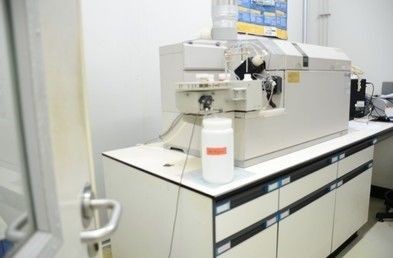Testing for Heavy Metals in Herbal Medicines
Inquiry
Heavy metals are one of the most essential harmful contaminants in herbal medicine, which may be contaminated to varying degrees during production, transport, and storage. Heavy metals such as arsenic (As), chromium (Cd), lead (Pb), mercury (Hg), and copper (Cu) have obvious biotoxic effects. They can easily accumulate in the human liver and other organs, causing acute or chronic poisoning in humans, and severe cases, carcinogenic, mutagenic and teratogenic effects.

Accurate determination of heavy metal content in herbs is the key to evaluating heavy metal contamination and the quality of herbs. Lifeasible offers a wide range of methods for determining heavy metals such as Pb, Cd, Hg, As, Cu, and other heavy metals in herbs.
Pre-treatment of herbal samples
As the digestion of herbal samples is essential for accurately measuring heavy metals, we will recommend the most suitable sample preparation method for your herbal material based on its characteristics and needs. One of the most commonly used pre-treatments for elemental analysis is sample digestion, which destroys the sample's organic matter to release the measured element. The most commonly used methods for sample digestion are dry ashing, wet digestion, and microwave digestion.
Methods for the detection of heavy metals in herbal medicines
Heavy metals in herbs can be determined by atomic absorption spectrophotometry (AAS), inductively coupled plasma mass spectrometry (ICP-MS), and inductively coupled plasma emission spectrometry (ICP-AES). The atomic absorption spectrophotometric methods include cold atomic absorption, flame atomic absorption spectrophotometry (FAAS ), graphite furnace atomic absorption spectrophotometry (GF-AAS), and hydride-atomic absorption (HG-ASS).
| Detection methods |
Detection of elements |
Preparation of the test solution |
Determination conditions |
| GF-AAS |
Pb, Cd |
- Microwave digestion
- Hot plate digestion
- High-temperature oven digestion
|
Detection wavelength, temperature rise procedure |
| FAAS |
Cu |
- Microwave digestion
- Hot plate digestion
- High-temperature oven digestion
|
The wavelength of detection, flame type |
| HG-AAS |
As, Hg |
- Microwave digestion
- Hot plate digestion
|
Reducing agent, carrier fluid, carrier gas |
| ICP-MS |
As Cd, Pb, Hg, Cu |
|
Isotope internal standard |
In the modern herbal market, herbs with excessive heavy metal content can occur due to factors such as production processes, preparation techniques, and the environment of origin. When the heavy metal content in herbs is too high, it not only affects the medicinal value of the herbs but can also cause diseases. Lifeasible offers a range of services for determining and evaluating heavy metal content in herbs for producers and researchers in this field. Please feel free to contact us for information.
For research or industrial raw materials, not for personal medical use!
Related Services

